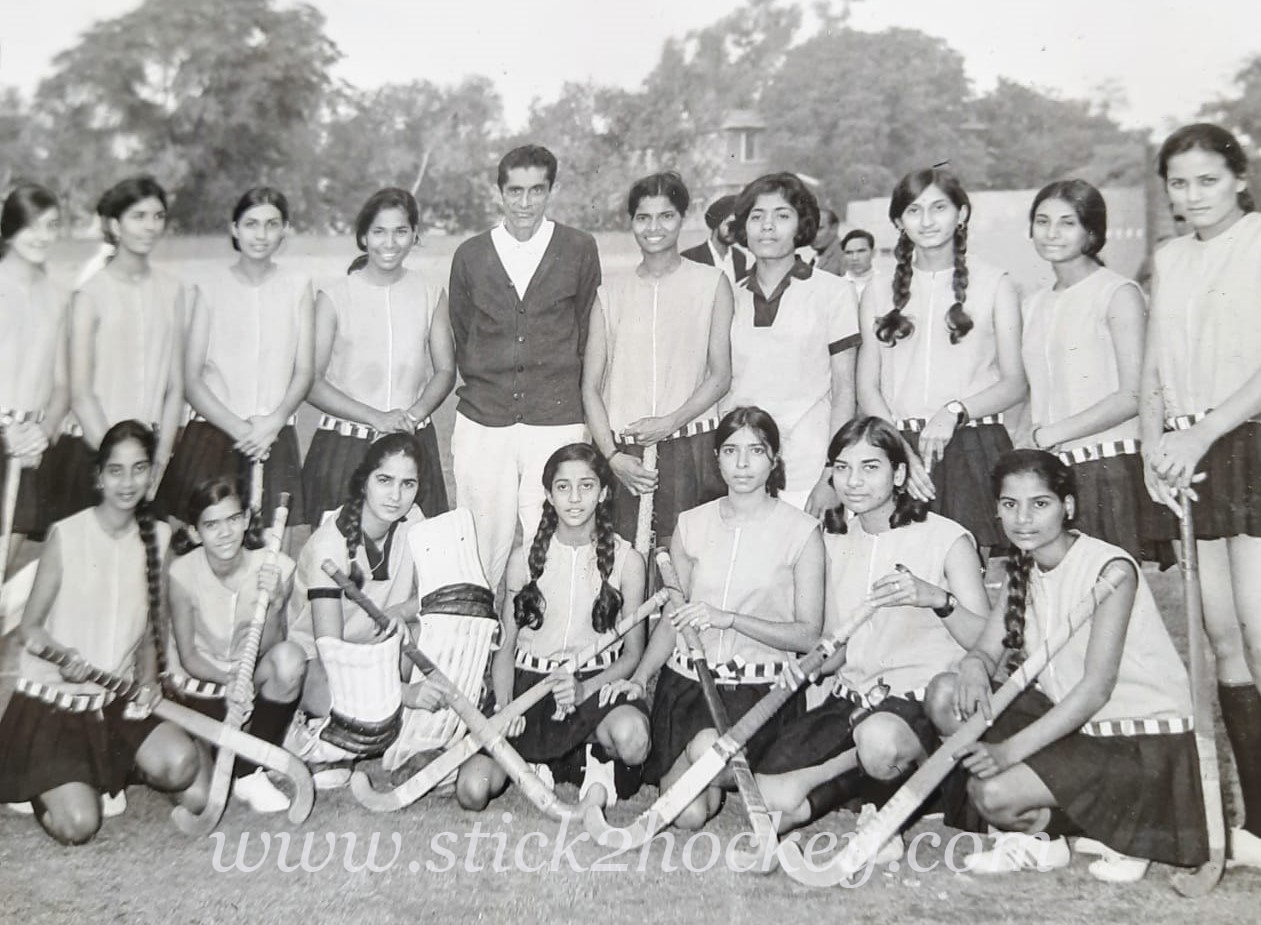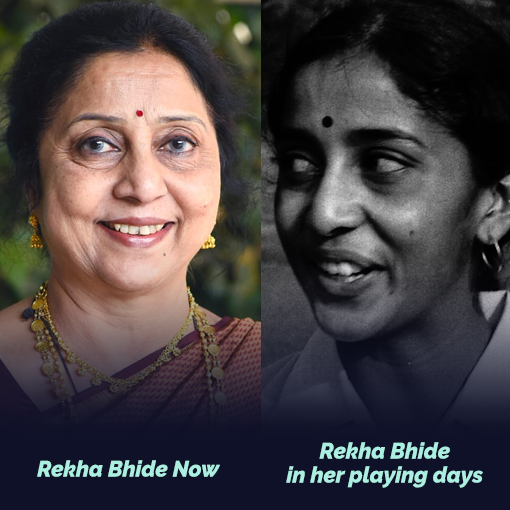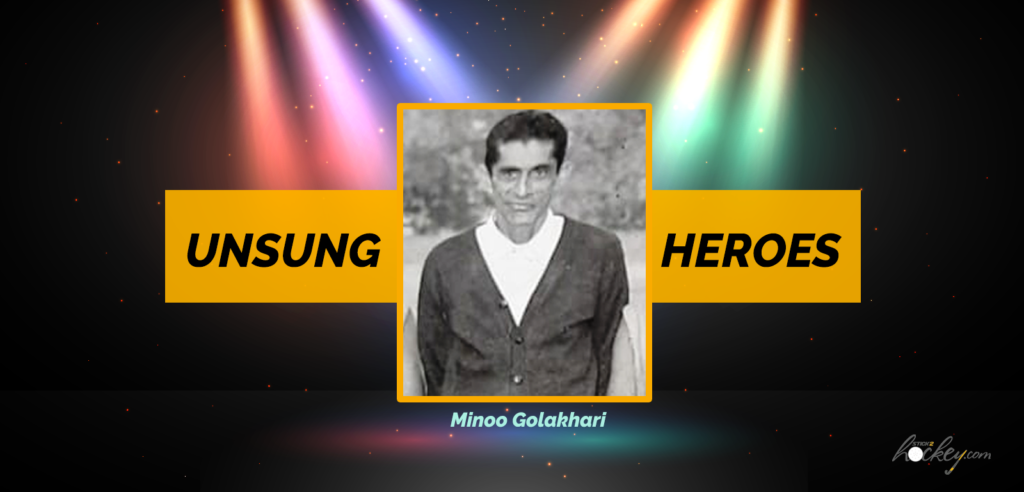He was meticulous, methodical and rendered marvelous service to the country. The talent aplenty that he unearthed rose to dizzy heights and gave Indian women’s hockey many a momentous moment for decades. A magic wand he certainly didn’t wield, but his commitment, sacrifice and analytical brain worked wonders. He got nothing in return – and posthumously too may not get the credit he truly deserves — but he lives perennially in the minds of his wards. Let us unravel the world of MINOO GOLAKHARI – Editor
By NANDAKUMAR MARAR
Eliza Nelson and Rekha Bhide and describe the late Minoo Golakhari as their hockey inspiration. A bachelor devoting his life to the sport, a long-distance runner, he mentored generations of girls at Pune’s famous Kayani Club. Many went to represent Maharashtra in women’s hockey, the best of the pack wore India colours at the World Cup, Olympic Games and Asian Games. He passed away in 2001, leaving behind international and local players wondering why coaching honours and recognition did not happen to a person for whom hockey was everything.
Two stalwarts from Kayani Club, later to represent Maharashtra and captain India, midfielder Rekha and winger Eliza, attempt to bring out aspects in the person who will always remain a shining light for life.
Now retired and based in Pune, both were on the national women team at the 1980 Moscow Olympics. The former donned the national colours at the 1974 Paris World Cup. The latter tasted success as a member of the gold-winning 1982 Delhi Asian Games women’s squad.

Coach and mentor Minoo Golakhari (c) Photo: @ Rekha Bhide
Rekha quipped: “Five players from Kayani Club were chosen for the Moscow Games. Eliza, Geeta Sarin, Nazreen Madraswala, Hutoxi Bagli and me. It was a proud moment for Sir. Others had played before my time, Zarina Madraswala for example, many younger teammates played after me.” She added: “I started going for India camps from 1973, after every camp we got in touch with Sir, telling him about things taught at the camp and we used to Sir, we used to ask him about the ways to improve. We trusted his judgement more than anyone else. When we were chosen to lead, he taught us how to handle the squad and deal with each player.”

Arjuna awardee Rekha-Bhide
The India women’s hockey vice-captain (Moscow 1980) points out: “Coaches now get paid, have video analysts to supply information, get a diet allowance and other facilities. There was nothing like this in Minoo Sir’s time, yet he produced so many players for India. You see a coach in the dugout today, shouting instructions. Sir did not do this, he would tell us to work out answers by ourselves in the match. He would prepare us in-depth for a game, leave it to us to execute, in this way he made us thinking players, besides making us fearless.”
For the Pune-based coach who travelled with the Maharashtra women’s team for the National Championships, hockey was geometry. “Sir told us to view hockey playing as geometry, how to position oneself and anticipate a rival shaping to pass the ball and step in to cut off the pass. Realizing that I was smaller compared to national probables from Punjab, he made me switch from centre-half to right-half and worked on interceptions. Sir taught us how to change the grip on the stick for different shots.“
Eliza (women’s captain 1982 Delhi Asiad) pointed out: “You know how difficult it is to break into the Indian team without a godfather. Work ethics taught by him got us there. Minoo Sir knew by watching which person was suited for which position. I was an athlete in school, doing the sprints so was put in right outer position, Nazleen (Madraswala) was more of a left-handed player so was made the left-outer. The main quality in him was his pep talks. He would watch the previous match and tell each player how she should mark the opponent. Blessed with sharp powers of observation, he told us how to combine and score goals. We had to be perfect, whatever position we were playing. Just by sitting and watching, he knew exactly what needed to be done by each player in the game.”
Rekha came to his attention during inter-school matches for St Joseph, Eliza recalled her entry into hockey. “Sir lived very close to my house. Every day as he passed by, he used to see me playing with my sister in a lane. One day he just stopped, came inside the lane and asked me to join Kayani Club. After joining his club, I realised all the top players in Pune where there. I started hockey there, went on
to play for Maharashtra and India.” The latter is a Padmashri awardee.
The club coach made sure each player was looked after. Rekha, an Arjuna awardee, recalled being made to eat first prior to training. The youngster reached the ground right after school, so made me get refreshed and eat to keep up energy level before hockey started. “I don’t know how he organised the money, but made sure each player was fresh for training.”
Sacrifices of coaches like Minoo Golakhari helped India establish a formidable image in the international arena
Eliza recalled:“I think he was attached to the Zilla Parishad and got a pension, he would spend all his money on us players. The club training was far away, at Fergusson College, from where we stayed in the Cantonment area. We assembled in front of the club at 5.30am and he would join us on the bus journey to the ground. He paid for the our bus tickets, a glass of sugarcane juice was his treat for us after training. It was fun, when you are young and going as a group for training.”
The coach made sacrifices in personal life to devote time for the sport. “He stayed alone in a small room away from parents, because he was all for hockey, nothing else mattered. I am sure Minoo Sir looked for recognition from the (national) federation. It has happened time and again to people who devoted their life for hockey, got nothing in return.”
These two are the only players we spoke to, for a glimpse into a dedicated talent-spotter, coach and mentor rolled into one person, during glory days for Maharashtra women’s hockey at the national and international level. Others who blossomed under him have their own tales about the coach everyone respects.


3 Comments
“He got nothing in return – and posthumously too may not get the credit he truly deserves — but he lives perennially in the minds of his wards”.
Very unfortunate to read such anguish.
Thank you for honoring him. I was also one of the many who was nurtured by him and taught so many things. I remember him feeding me before practice as well. He spoke his mind. Wanted the best for us. The way Indian hockey operated I guess that it was not a welcome trait. I believe he was cast aside. But his teachings live on in so many of us.
Heard a lot about him. Eliza and Nazleen were very good. I can’t say that about the rest. It’s always the case that recognition is never given to the deserving. The best example is B K Mohite, founder of Bombay Republicans!